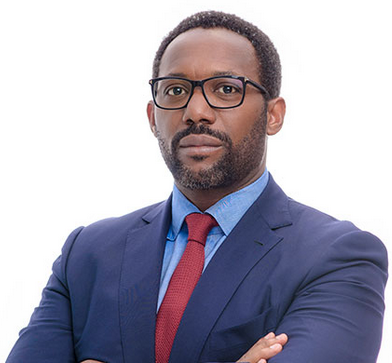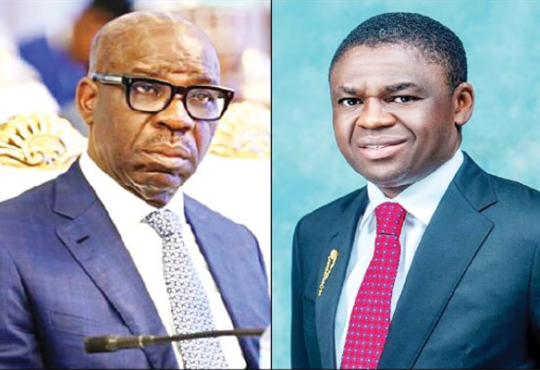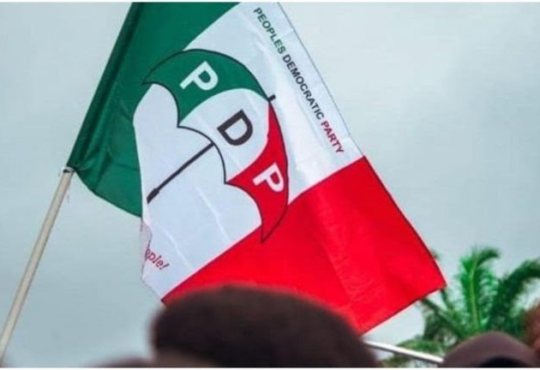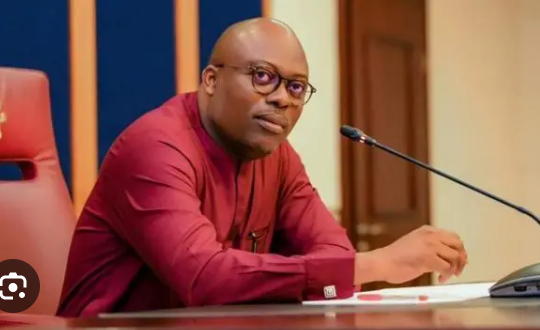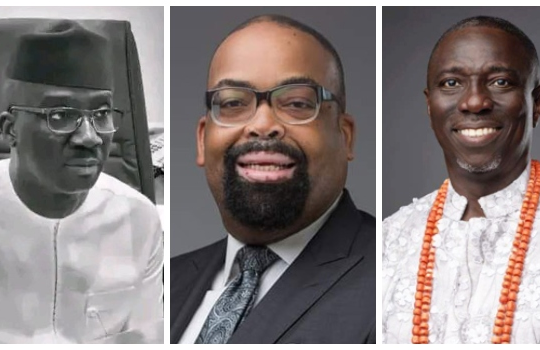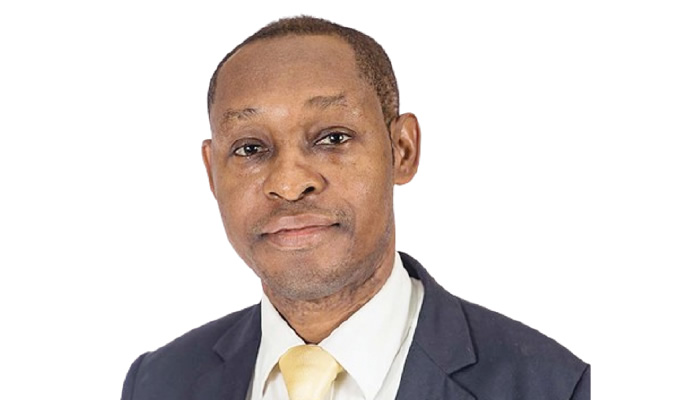
A lawyer and Executive Director, Centre for Social Justice, Eze Onyekpere, speaks to AYOOLA OLASUPO on the legal implication of the allegation against the suspended Minister of Humanitarian Affairs and Poverty Alleviation, Betta Edu, among other issues
The issue of restructuring has been a bone of contention that successive governments have not been able to address over time. What advice do you have for the current administration concerning that?
You have a number of people and the bulk of these governments are the people who have been talking about restructuring and made it a mantra and an agenda for many years. So, the expectation is that it is time to walk the talk. The expectation is that they should go ahead and start the restructuring process.
Does it mean that an amendment to some sections of the constitution which many people have recommended can pave the way for the restructuring we are talking about?
Basically, whatever you need to do, it has to be done under an enabling law. And if there are fundamental issues that involve the structure of the federation, they must be done under the constitution. So, the constitutional amendment needs to be done, as well as the enactment of new laws and review of existing laws. Definitely, there must be a legal approach to the restructuring. It must be backed by law.
Do you also subscribe to the call that the Electoral Act should be amended by the National Assembly before the next election cycle?
It is a difficult one because we have been on this perpetual journey of every election being done with a new law. If you think you’ve tied all the loose ends, some clever politicians or judges will simply read the law upside down and still impose the same mischief and hardship on the people. Yes, let them try. We need to try but this time around, they should involve some of these judges to interpret these laws. They are paid with my tax money. So, we shouldn’t just simply let them be subject to reading the law upside down each time.
You can call the Chief Justice of the Federation. The National Assembly can approach him to say, ‘This is our objective; look at the draft we have, help us in cleaning out the draft in such a way that meets this objective so that when we come to you, we don’t get into a situation where the intent of the law will be subject to varying interpretations’. Of course, get very well-experienced lawyers to draft the document after we have come to a conclusion from the people, not just a legal or scholarly document but after we’ve had enough conviction that we will have a tight draft that will not be subjected to mysterious interpretations when it comes before the courts.
Currently, the suspended Minister of Humanitarian Affairs and Poverty Alleviation, Betta Edu, is embattled as a result of her alleged involvement in transferring public funds into a private account. What is the implication of such an allegation against her?
The implication is clear; the laws have been violated because what she did was expressly outlawed in Section 713, which says that what you do is evidence of an intention to defraud the tradition. So, that is clear. If you violate the law, you should go to the sanctions section and then read the sanctions and make it out on the person who violated the law because the law is defined as a command of the sovereign and not by sanctions. If you remove sanctions from the law, then it carries no weight. So, it is a straightforward thing.
But some people said that it did not matter whether the money was transferred to a private or public account and that the most important thing was to consider whether or not the funds were used for their main purpose.
No, the issue is about the process. The process helps you to achieve the goals because beyond transferring that money, the financial regulations talk about e-payments. You pay people not by cash or cheque but money leaves the government account and moves straight to the beneficiary. Before you do that, you must have processed it and a voucher must have been raised, showing that you either did a contract or consultancy for the government and that you completed your work, and you’ve been approved. This is a certificate of completion; therefore, you are entitled to receive a certain amount under this transaction with the government or you are a beneficiary by the authority of a certain law or regulation, and that regulation or law will be cited and money moves from the account, not from the third party, but from the account of the government straight to the beneficiary.
So, there is no justification for this to stay because there should be an audit and paper trail that shows how money leaves government accounts to beneficiaries. What purpose is putting it in the private accounts serving? What purpose? Normally, the MDAs receive their allocations after the budget from the Accountant-General. Once they receive it, then they spend it on their own. What is this idea of you spending it from your ministerial account or the account of the ministry?
You are going straight to the Accountant General to spend. I think you said the Accountant General is now the Director of Finance and Accounts of the ministry. So, a lot is wrong and there is no question of what you want to achieve. No! That process must have been made to obviate the rules. This is not private money; it is public money. If there are laws that have been violated, they should be prosecuted. They should look through the EFCC and ICPC Acts and even the financial regulations and the punishments that should follow. She should be sanctioned in accordance with the law.
In 2023, SERAP accused former President Muhammadu Buhari of not executing several groundbreaking judgments by the judiciary. What can you say about the persistent and deliberate disobedience of court rulings by the government?
It is more or less an executive thing. The judiciary will deliver the rulings in accordance with the law. It shows lawlessness, impunity, a non-democratic state of mind, and a state of mind that is atoned with dictatorship. It doesn’t show that we are operating a proper and functional democracy. It is an unfortunate scenario. All court judgments that have not been appealed should be implemented to the letter. That is about the rule of law and due process.
Regarding that, what advice would you like to give to President Bola Tinubu about obedience to the rule of law?
Obey all court orders. The ones you don’t like, appeal against them. Once you’ve reached the last bus stop which is the Supreme Court or Court of Appeal, wherever the decision should end, you obey the law. It’s a straightforward thing. There are no two ways about it or dancing around it. If you think any law is no longer serving the purpose of the public, you either amend the law or repeal the law through the legislature. You send an executive brief and things will move on straight forward.
Many people see the judiciary as an institution that can no longer be relied on because of the manner in which certain cases were handled in the past. How do you think the judiciary can actually regain its normal reputation as the defender of the people?
They know what to do, and don’t need to continue interpreting the election cases upside down. There is nothing magical they are doing. Those of them sitting in the judiciary from the High Court, Court of Appeal to the Supreme Court, there was no exam set for them to have got the highest marks in the whole legal profession. Every reasonable lawyer or human being can interpret laws. When they begin to read the law in a manner suggestive that there is anything they know beyond what other lawyers do know and threaten us with their power to punish for contempt, it doesn’t make sense. So, they should do the right thing. They know what to do. They have a conscience. They were trained like all of us as lawyers and there is no big deal. They should do their duty and stop dancing around issues and hiding under technicalities to do substantial injustice.
Many people have also said that the judiciary’s heavy financial dependence on other arms of government gives room for its manipulation. What is your view about the call for financial autonomy for the judiciary?
But they have their independence. The constitution grants them independence and their money is sent to them. So, there is no question of relying on anybody. That’s not true. Their money is sent to them as a first-line charge. So, they are not relying on anybody.
We’ve heard about several cases of public officers who were alleged to be involved in fraud going scot-free without being severely punished to serve as a deterrent to others who may want to engage in fraudulent activities. What can be done to change this habit of glossing over serious fraudulent offences and allow offenders to go scot-free because they belong to a certain click in the government?
With a diligent investigation and prosecution by the EFCC, ICPC, Ministry of Justice, the police, or even a private lawyer; with a diligent investigation by the investigative authorities, prosecutorial authorities, there is no way the person will escape but if you put up a watery case before a judge, no matter the social clamour for the person to be dealt with, nothing will come out of it.
What can you say about a situation whereby only the property of errant public officers are seized after they have been investigated and found guilty? Why are these offending public officers are not jailed?
Well, it depends on the procedural use. If they did a flip again and were exempted from other sanctions for returning the money, then that would be in accordance with the law. It depends on what the prosecutorial authorities decide to do in terms of getting justice for society because I think most of the time, people would love to see property returned and properly used. Yes, if the person goes to jail, that’s another kettle of fish. Maybe some retribution but the most important thing is to recover these properties and maybe the possibility of sanctions so that it can serve as a deterrent so that others will not do it in the future. But the important thing is that it depends on the procedures and the decisions based on empirical evidence taken by prosecutorial authorities with which the court agrees.
Many people have condemned the Federal Government’s amnesty programme for terrorists in such a way that they actually said after arresting terrorists, rehabilitating, and integrating them back into society, most of these things do not actually work in the real sense.
There is no need for amnesty for terrorists who have been involved in shedding blood, and destroying livelihoods, and communities. These are capital offences that should be punished by death penalty. Although I am not particularly a fan of giving death penalty, even if you say you give them life imprisonment, you should not let them go scot-free because most of them do not have the level of education and human understanding to make them come back to their senses. They cannot be humanised. Some are like animals. So, the best thing is to get them away and deport them for life so that the society can be more peaceful. There is no need for running around of somebody who has killed several others and there is evidence that some of his colleagues who were released went back to the crime again. They took it as an opportunity to refresh their minds on how to commit more crimes. So, they should face the full sentence of the law. That is my opinion.
Do you think that Nigeria can be corruption-free with the disturbing level of poverty in the land?
It depends on the political will of those at the helm of affairs. If they want to do proper investigation and prosecution and give matching orders to the law enforcement, prosecutorial agencies, then that will be achieved.
What speedy measures can be taken to tackle poverty in the country?
There are no speedy measures to tackle poverty. It involves planning, implementation and nobility of intentions and character by those at the helm of affairs when they decide we are not going to steal and allow anybody to steal and then you plan programmes and activities that will improve the economy. For instance, you must fight insecurity and insurgency circumstances so that farmers can go back to their farms. You begin to motivate manufacturers to stay in the country, not to close shop and leave, both local and foreign. Of course, you patronise Nigerian made goods, especially by the government goods and services because they spend the most for procurements in any economy and then you link up the economy in Nigeria and integrate it to not running the economy in silos to understand that what happens in the ports for instance, will influence the cost of manufacturing goods and services in the country.


